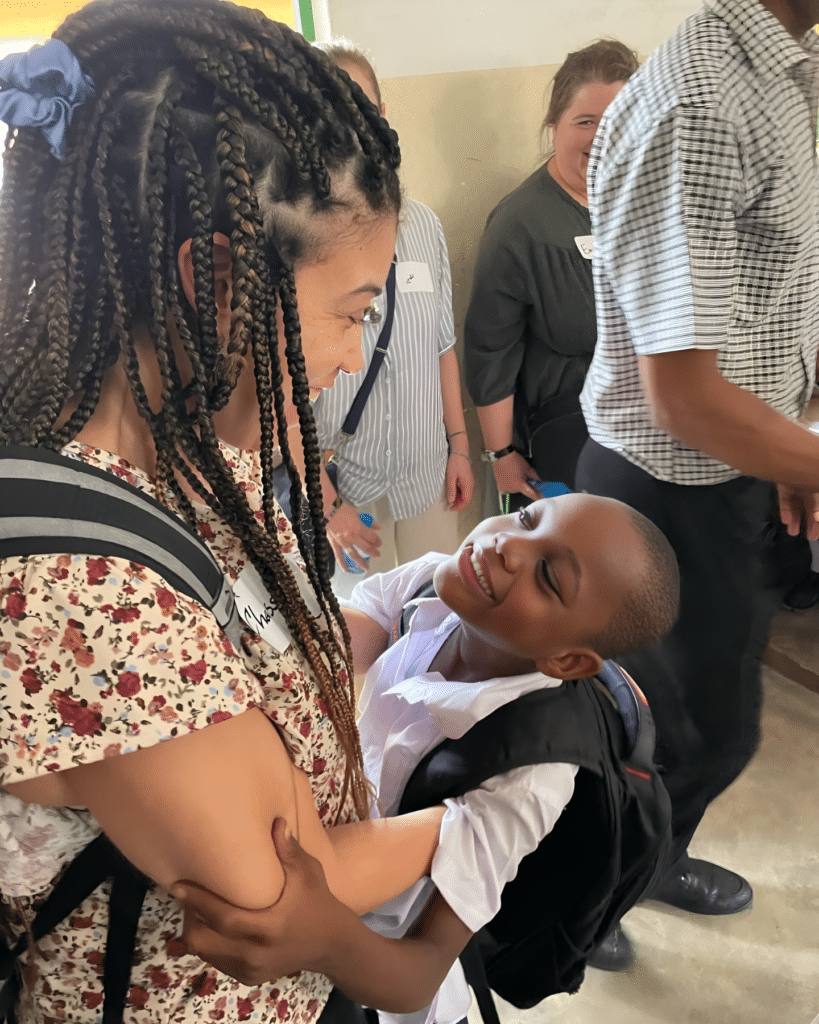By: Maha Khan
Dr. Pizarro, a dedicated psychologist renowned for serving underserved communities, shares her insights and initiatives to improve mental health care accessibility and inclusivity.
Dr. Pizarro’s journey began with her humble beginnings and personal experiences of financial hardship, which inspired her to pursue education as a means to escape poverty and give back to her community. “Growing up with financial challenges gave me the foresight to leave poverty by getting an education and to give back to my community once I achieved that goal,” she explains. As a psychologist of color, her unique perspective allows her to see and address underserved communities’ true mental health needs. She likens her experiences to wearing pastel blue glasses that enable her to better help and advocate for those who are often overlooked.
Low-resourced populations and undocumented immigrants face numerous challenges in accessing mental health services, from lack of insurance coverage to long waitlists. “Until recently, undocumented immigrants had no access to health insurance coverage,” Dr. Pizarro notes. “Very recently, children gained coverage by being eligible for Medicaid, but adults remain without this valuable commodity.” To address these challenges, Dr. Pizarro runs a grant-funded program offering in-home therapy to children and families who have experienced trauma. Additionally, she provides clinical supervision to staff and offers pro bono services in her private practice, ensuring that even those without resources can receive the mental health care they need. “We provide more than therapy; we educate and empower clients to meet the challenges they face.”

Photo Courtesy: Dr. Charissa Pizzaro
Inclusivity and cultural sensitivity are pillars of Dr. Pizarro’s practice. She emphasizes the importance of staying informed about the latest research and regularly attending training to ensure her practice remains trauma-informed and culturally sensitive. “I pride myself in being inclusive by servicing diverse clients who are not only diverse ethnically but are diverse in other ways as well,” she says. Diversity education is critical for mental health providers, and Dr. Pizarro conducts training on cultural competence and cultural humility, emphasizing the importance of working with disadvantaged populations in a culturally sensitive manner.
Dr. Pizarro actively participates in organizations such as the American Psychological Association and the Latino Action Network Foundation. She has contributed to policy roundtables, provided input for congressional initiatives, and participated in working groups focused on the challenges faced by undocumented immigrants. “I have conducted many trainings for mental health providers on topics such as cultural competence and cultural humility,” she says. Through these efforts, she advocates for diversity education within the mental health community and calls for systemic changes to make mental health services more accessible. “Because there is such a need systemically, I participate in policy development and advocacy in conjunction with organizations that advocate for these same ideals,” she adds. She has lobbied in Congress for policies to implement mental health services in low-resourced schools, highlighting the importance of cultural competency as foundational to effective mental health treatment.
In supporting undocumented immigrants, Dr. Pizarro engages through various organizations and offers a children’s book in English and Spanish to help families develop healthy coping strategies. Her practice also provides essential community resources to address broader social challenges such as food and housing insecurity. “I wrote a children’s book which is available both in English and Spanish to support children and families in this population in developing healthy coping strategies to face some of their challenges including the experience of high levels of trauma often found in this population,” she says. She advises mental health professionals to seek training opportunities to enhance cultural competence and clinical skills, underscoring the impact of such training on both individual and systemic levels. “Cultural sensitivity and cultural competence enhance your clinical skills and help exert change not only within the individual but within the system as well.”
Dr. Pizarro is organizing a series of training sessions for mental health providers in Tanzania and will present a workshop on addressing trauma in undocumented immigrants at the APA Convention in August 2024. “My current initiative is organizing a series of training sessions for mental health providers in Tanzania, Africa,” she says. She measures her impact through positive client outcomes and the enactment of policies and initiatives she has advocated for, finding fulfillment in engaging participants in cultural competence training and securing grants for disadvantaged populations. “I measure my efforts in promoting inclusivity and serving low-resourced communities by witnessing some of the positive changes which ensue once I provide therapy to my clients and by seeing policies and initiatives that I have advocated for be enacted.”
She shares success stories, such as helping an asylum seeker escape political persecution and assisting a Texas lawyer’s client with an immigration evaluation, underscoring her work’s profound impact. “It felt great knowing that she would be safe in this country and she had a chance to start a new life. Her lawyer thanked me personally, which also felt really good,” she recalls. These rewarding experiences reaffirm her commitment to providing inclusive mental health care and advocating for those in need.
Dr. Pizarro calls for new state and federal policies to improve mental health care accessibility, believing that united efforts with advocacy organizations are crucial for systemic change. “At this time, mental health access is not optimal. I think we need to consider implementing new state and federal policies to make mental health care more accessible for all,” she says. Her dedication to promoting inclusivity and serving underserved communities continues to make a significant impact on the lives of many.
Published by: Holy Minoza








